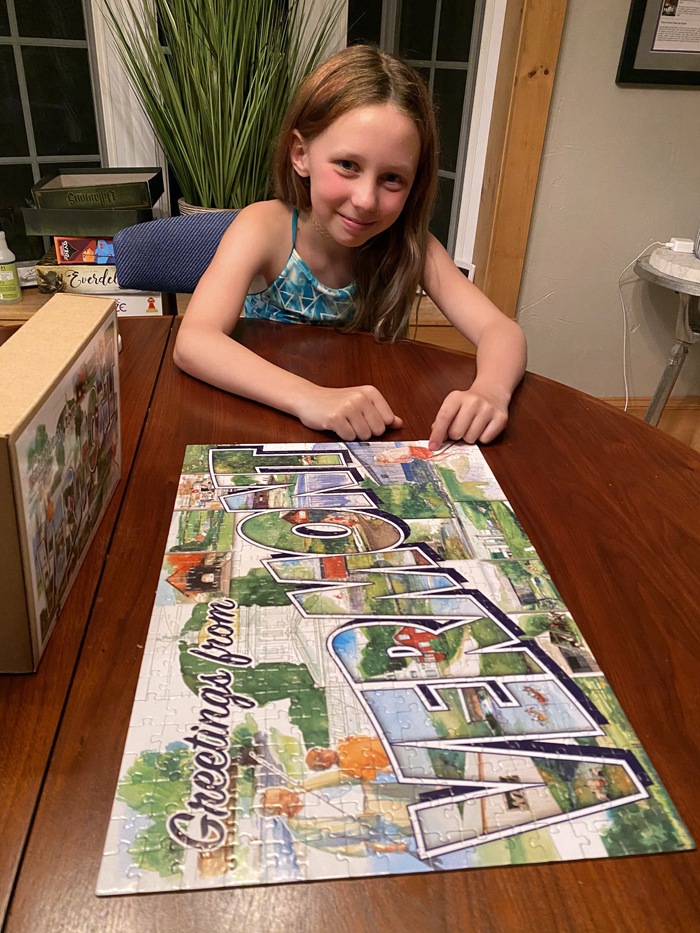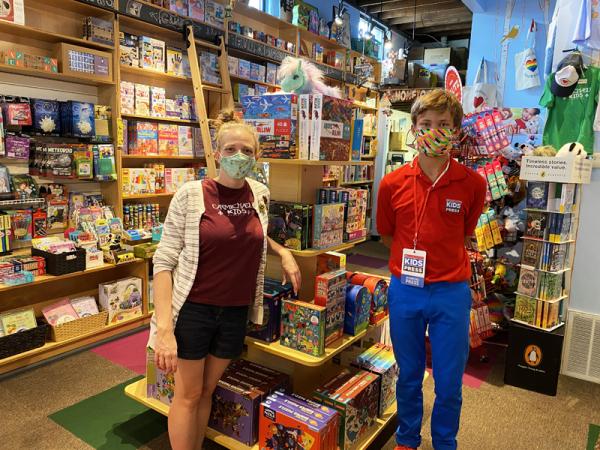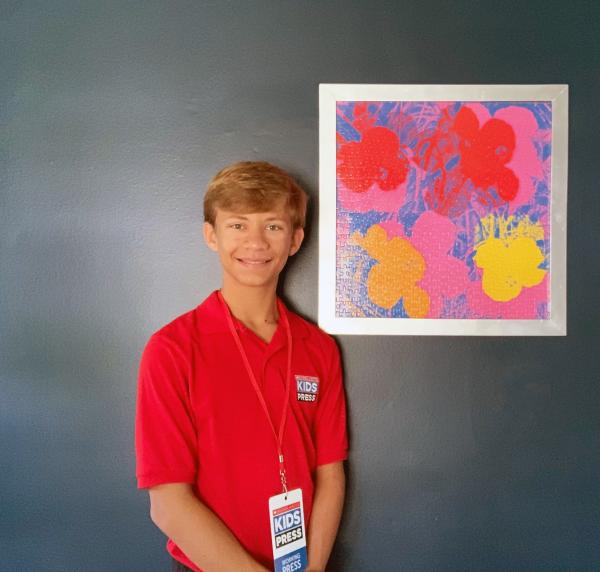KID REPORTERS’ NOTEBOOK
For Many, the Pandemic Is a Puzzling Time


Nell Jacobsen, 11, at home in Massachusetts with a puzzle that she completed about the neighboring state of Vermont
The coronavirus pandemic and related stay-at-home orders have led to a renewed interest in many timeless activities. Chalk art adorns neighborhood sidewalks, bike sales are booming, and jigsaw puzzles have found a popularity similar to that seen during the Great Depression.
Invented in 1766 by British engraver and mapmaker John Spilsbury, jigsaw puzzles were once used to teach children geography. In the early 20th century, the puzzles became popular among adults seeking a challenging hobby. During the Depression in the 1930s, jigsaw puzzles hit their peak in popularity, selling at the rate of 10 million puzzles per week.
By the 1940s, when the U.S. entered World War II, sales of the puzzles began to drop. By the mid-1970s, many puzzle makers had closed up shop.

Leo and store manager Michelle Shaver stand next to a display of jigsaw puzzles at Carmichael’s Kids, an independent bookstore in Louisville.
IN DEMAND AGAIN
For companies still making jigsaw puzzles, 2020 has proved to be a record-breaking year. According to an April CNBC interview with Filip Francke, chief executive officer of the popular puzzle maker Ravensburger, in the last two weeks of March, the company saw U.S. puzzle sales increase 370%, year over year.
Carmichael’s, an independent bookstore in Louisville, Kentucky, “saw an almost immediate demand for both kid and adult puzzles,” said Michelle Shaver, manager of Carmichael’s Kids. “Our web orders skyrocketed, and our puzzle inventory depleted.” Shaver also noted that Carmichael’s Kids “has kept special glue and board in stock for those who want to preserve and display completed puzzles.”
As Shaver mentioned, both children and adults have contributed to the puzzle craze. “I’m doing jigsaw puzzles now because it gives you something good to focus on instead of all the bad stuff,” said Nell Jacobsen, 11, of Massachusetts. During the pandemic, Nell completed a jigsaw puzzle celebrating the nearby state of Vermont.
Kendall Gellar, 14, and her 12-year-old sister, Rose of Louisville have also taken up the pastime. “We didn’t really do puzzles before the pandemic,” Kendall said, “but it was a fun and relaxing activity to do with our family during quarantine.”

Leo in front of a puzzle that he and his family worked on and framed as a memento of their time spent together during stay-at-home orders.
A COMFORTING HOBBY
Virginia political consultant Kyle Ruempler is no stranger to puzzling. “My family has always used puzzles as a non-stressful way to spend time together,” he said. “Everyone sits at the table and finds a unique way to contribute. So doing puzzles is very nostalgic for me. It calms me and brings up happy memories, which is great during COVID-19.”
For Leslie Nemes of Louisville, working on Disney-themed puzzles during the long days of isolation helped her capture a little of the magic of her favorite place.
During the Depression, puzzles provided an inexpensive and entertaining escape from an otherwise harrowing time. Perhaps the popularity of jigsaw puzzles has risen during the Covid-19 pandemic for the same reasons. A fun and easy way to exercise your brain, completing a jigsaw puzzle provides a sense of order and accomplishment in an otherwise chaotic world.
Today, jigsaw puzzles are available in every shape and size. You can work on them alone or with family and friends. Completed puzzles can even be glued together and displayed as a memento of this strange time.
